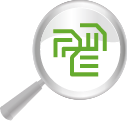The Midwest Cover Crops (MCCC) spearheaded the creation of a state/province-specific online cover crop decision tool with the goal of increasing cover crop use and thus the sustainability of Midwestern cropping systems. The tool allows users to input their location, cash crop and field information, and desired cover crop attributes. As users input more information, the tool immediately updates the list of appropriate cover crops. This dynamic tool thus will serve as an excellent teaching tool, as well as decision tool, for Extension personnel and farmers seeking to make better cover crop choices.
Vigie-PME
A State-Specific Online Cover Crop Decision Tool for Midwest Farmers
- 19 Décembre
- Clics: 6276
- Articles scientifiques
The Midwest Cover Crops (MCCC) spearheaded the creation of a state/province-specific online cover crop decision tool with the goal of increasing cover crop use and thus the sustainability of Midwestern cropping systems. The tool allows users to input their location, cash crop and field information, and desired cover crop attributes. As users input more information, the tool immediately updates the list of appropriate cover crops. This dynamic tool thus will serve as an excellent teaching tool, as well as decision tool, for Extension personnel and farmers seeking to make better cover crop choices.
Meeting Extension Programming Needs with Technology: A Case Study of Agritourism Webinars
- 19 Décembre
- Clics: 5962
- Articles scientifiques
As clientele needs diversify, Extension educators are examining new technologies, including online tools, to deliver educational programming and resources. Using agritourism as the educational topic, the study reported here sought to evaluate participants' acceptance of online educational programming (webinars) and the effectiveness of the technology in meeting the needs of participants and Extension educators. Overall, results provided favorable support of webinars for online educational programming and illustrated the effectiveness of this technology in reaching diverse audiences. Findings suggest webinars can enhance the value, availability, and sustainability of Cooperative Extension programming.
An AHP-based fuzzy interval TOPSIS assessment for sustainable expansion of the solid waste management system in Setúbal Peninsula, Portugal
- 19 Décembre
- Clics: 6366
- Articles scientifiques
Source: Resources, Conservation and Recycling, Volume 56, Issue 1, November 2011, Pages 7-21
Ana Pires, Ni-Bin Chang, Graça Martinho
Recent challenges in solid waste management in Europe are intimately tied to the fulfillment of the prescribed targets of recycling and organic waste recovery in response to the requirements of European Directives. Challenges with characterizing and propagating uncertainty, and validating predictions permeate decision making. In order to retrieve the societal ramifications in decision making, this study integrates the analytic hierarchy process (AHP) and the technique for order performance by similarity to ideal solution (TOPSIS) for alternative screening and ranking to help decision makers in a Portuguese waste management system. To underscore the role of uncertainty in decision making for alternative ranking, a fuzzy interval multi-attribute decision analysis was carried out to aid in environmental policy decisions. While AHP was used to determine the essential weighting factors, screening and ranking was carried out by TOPSIS under uncertainty expressed by using an interval-valued fuzzy (IVF) method. Such an AHP-based IVF-TOPSIS approach driven by a set of weighting factors associated with the selected criteria has been proven useful for final ranking via an iterative procedure. The practical implementation was assessed by a case study in Setúbal Peninsula, Portugal for the selection of the best waste management practices under an uncertain environment, which is geared toward the target fulfillment in the future.
Highlights
► Integrating AHP with TOPSIS to help decision making for solid waste management featured with sustainable expansion challenges. ► Answering sustainability assessment issues with the implications of life cycle assessment (LCA). ► Promoting uncertainty analysis for reliable environmental decision making.Feasibility assessment of recycled water use for washing machines in Australia through SWOT analysis
- 19 Décembre
- Clics: 7635
- Articles scientifiques
Source: Resources, Conservation and Recycling, Volume 56, Issue 1, November 2011, Pages 87-91
Bandita Mainali, Huu Hao Ngo, Wenshan Guo, Thi Thu Nga Pham, Archie Johnston
Sustainable urban water consumption has become a critical issue in Australia due to increasing urbanization, the country's dry climate and its increasingly variable rainfall. Water recycling is considered vital to alleviate the demand on limited water supplies. The demands on water utilities to develop water recycling capacity and supplies are therefore expected to intensify in Australia. Dual reticulation systems have already been introduced in many cities in Australia and this is likely to expand to many other cities in the future. Developed and proposed dual reticulation schemes in Australia demand the substantial replacement of tap water with recycled water to ensure system optimisation and the sustainability of water supplies. This study successfully applies Strengths, Weaknesses, Opportunities, and Threats (SWOT) analysis as a research tool to assess the feasibility of use of recycled water in washing machine applications. Through the identification of the reuse schemes’ strengths (elements to leverage and build on) and weaknesses (areas to seek assistance and support) in addition to community opportunities (areas to leverage for program advantages) and threats (elements that could hinder the scheme), the positive aspects for the use of recycled water in washing machines is observed. Further study to address the specific concerns of the general public and the development of guidelines for this new end use is however essential to guide the implementation of recycled water schemes.
Highlights
► The paper aims the introduction of the new end use of recycled water. ► We identify the feasibility of using recycled water in washing machines. ► (SWOT) analysis is successfully applied as an analysis tool. ► Recycled water for washing machines is believed to be more sustainable option.Plus d'articles...
- Environmental performance of a XIV Century water management system: An emergy evaluation of cultural heritage
- The technical potential for reducing metal requirements through lightweight product design
- LCA of bioenergy chains in Piedmont (Italy): A case study to support public decision makers towards sustainability
- Comparative sustainability assessment of warm-mix asphalts: A thermodynamic based hybrid life cycle analysis
















